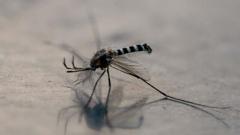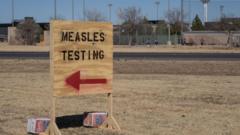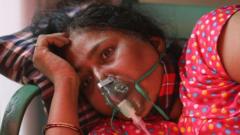Robert F. Kennedy Jr., the US Health Secretary, has made headlines by dissolving the entire Advisory Committee on Immunization Practices in a dramatic reshuffle aimed at rebuilding public trust in vaccines.
RFK Jr. Disbands Entire Immunization Advisory Panel Amid Criticism

RFK Jr. Disbands Entire Immunization Advisory Panel Amid Criticism
Health Secretary's Controversial Move Raises Questions About Vaccination Integrity and Future Recommendations
In a striking announcement made through an editorial in the Wall Street Journal, Health Secretary Robert F. Kennedy Jr. has dismissed all 17 members of the Advisory Committee on Immunization Practices (ACIP), raising significant concerns and debates regarding vaccination policies in the United States. Kennedy, known for his skepticism towards vaccine safety, claimed that conflicts of interest among committee members have eroded public confidence in immunizations.
The decision comes as part of Kennedy's broader objective to provide “the safest vaccines possible” and address issues he believes are tied to health authorities and pharmaceutical companies exacerbating public distrust. During his Senate confirmation hearing, Kennedy conveyed that he would not eliminate the committee, yet he subsequently deemed its composition problematic, particularly pointing out that eight of its members had been appointed during the last days of President Biden's administration.
Kennedy's editorial specifically highlights concerns regarding financial ties between ACIP members and pharmaceutical firms, asserting these connections have transformed the committee into a mere rubber stamp for vaccine approvals. This stance has attracted significant backlash from health professionals who worry about the implications of such drastic changes at a time when vaccination rates are declining and outbreaks of diseases like measles are occurring.
Senator Bill Cassidy, who is also a medical professional, called the sudden dismissal “worrisome,” expressing fears that the committee may soon be filled with individuals lacking comprehensive understanding of vaccine science. He stated his intention to engage with Kennedy to ensure future appointees possess the necessary expertise.
Critics, including Dr. Bruce Scott from the American Medical Association, have emphasized that the mass termination disrupts a historically transparent and life-saving process. The ACIP is expected to reconvene for crucial voting sessions shortly, tackling vaccination recommendations essential to public health in the context of ongoing disease outbreaks.
As anticipation builds around potential replacements for the ousted committee members, many remain vigilant about the future direction of the US's vaccination policy and the implications for public health safety amid increasing vaccine hesitancy.
The decision comes as part of Kennedy's broader objective to provide “the safest vaccines possible” and address issues he believes are tied to health authorities and pharmaceutical companies exacerbating public distrust. During his Senate confirmation hearing, Kennedy conveyed that he would not eliminate the committee, yet he subsequently deemed its composition problematic, particularly pointing out that eight of its members had been appointed during the last days of President Biden's administration.
Kennedy's editorial specifically highlights concerns regarding financial ties between ACIP members and pharmaceutical firms, asserting these connections have transformed the committee into a mere rubber stamp for vaccine approvals. This stance has attracted significant backlash from health professionals who worry about the implications of such drastic changes at a time when vaccination rates are declining and outbreaks of diseases like measles are occurring.
Senator Bill Cassidy, who is also a medical professional, called the sudden dismissal “worrisome,” expressing fears that the committee may soon be filled with individuals lacking comprehensive understanding of vaccine science. He stated his intention to engage with Kennedy to ensure future appointees possess the necessary expertise.
Critics, including Dr. Bruce Scott from the American Medical Association, have emphasized that the mass termination disrupts a historically transparent and life-saving process. The ACIP is expected to reconvene for crucial voting sessions shortly, tackling vaccination recommendations essential to public health in the context of ongoing disease outbreaks.
As anticipation builds around potential replacements for the ousted committee members, many remain vigilant about the future direction of the US's vaccination policy and the implications for public health safety amid increasing vaccine hesitancy.




















